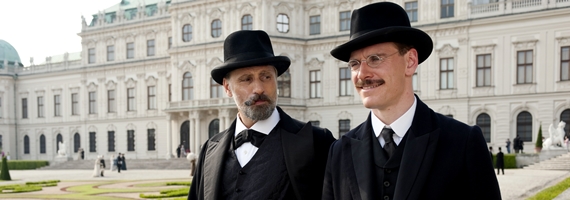One of the most interesting aspects of A Dangerous Method was the matters of psychology. The movie primarily focused on Sigmund Freud’s method of psychoanalysis and talk only briefly of Carl Jung’s interest in studying the unconscious. It was only really brought up to explain the rift that was beginning to grow between Freud and Jung. In the film, Freud and Jung have a rift brought between them when Jung starts to talk about the unconscious and Freud rejects it as paranormal beliefs.
One of Carl Jung’s psychological ideas is that we all have a collective unconscious. Essentially, there are major archetypes that anything with a nervous system has that is passed down to us from our ancestors. These include how we think of ourselves, what we are capable of that we are not aware of, the presence of the opposite sex within our psyches, and the way that we present ourselves to the public. Jung links these ideas to a notion of Freud’s that he calls “archaic remnants”. Freud believed that there was parts of a person that could not be explained based solely off of their life experience were parts of their mind that was passed to them through their ancestry.
It seems that Freud did have a similar set of beliefs to Jung in regards to more explainable theories of psychology such as collective unconscious, but did not want to venture into areas that required more faith than science to follow. Their beliefs seem almost bridged by Spielrein. She developed theories regarding peoples sex drive that calls to both psychiatrists. The criticism of Jung’s synchronicity theory makes me think that Freud knew exactly what he was doing when he detached Jung from himself, although Jung’s theories are interesting and I’m glad that he developed them whether or not they are necessary to the psychological field. [Written by Rob]




